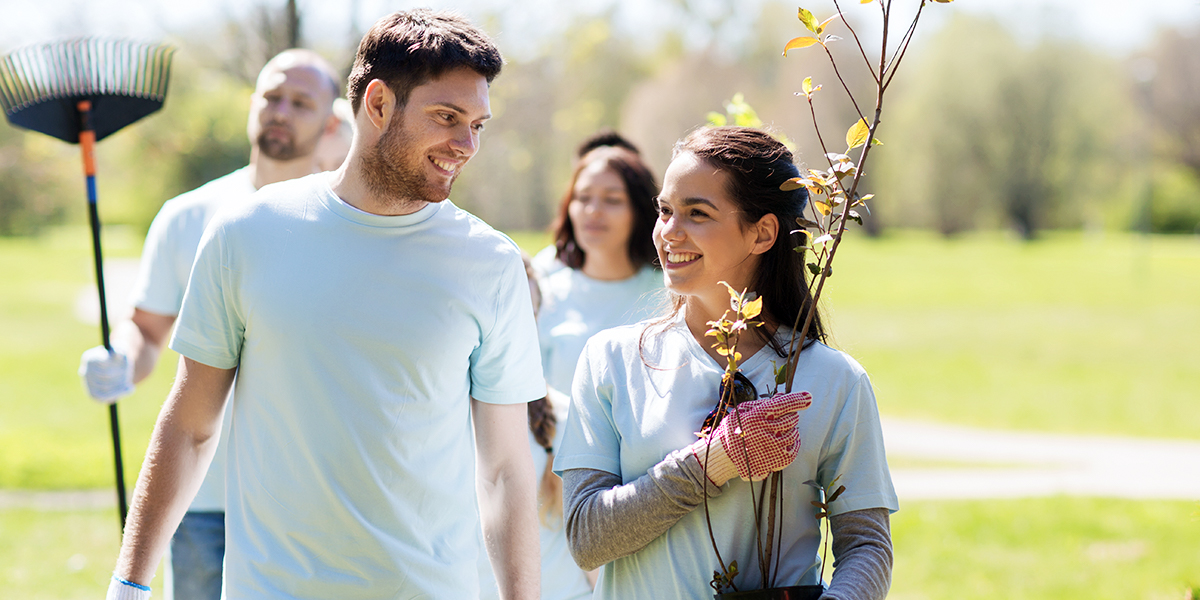Being alone can be refreshing, but it isn’t always what people want. For professional or personal reasons, we may become disconnected from other people as the years go by. If this happens, we may find ourselves with few people around us as we grow older, which can lead to loneliness. How can we overcome this isolation? What can we do to stop feeling alone? Here are 11 suggestions.
1. Decide not to be alone.
Loneliness is not an inescapable fate. It’s never too late to make friends. If you don’t want to be alone anymore and are looking for friendship, the first step is to convince yourself that you can find friends: Yes, even at your age. Yes, even in your situation. Yes, even with your physical limitations. Yes, even in the city or town where you live. It can be done!
2. Put on your “see friends” glasses.
Change the “lenses” through which you see the world around you, and you’ll discover possible friends in the people you meet every day, whether they are already known to you or not. Every day can be a happy surprise, but it all depends on your outlook.

3. Cultivate your family ties.
If you’ve disassociated yourself from your relatives, it’s time to strengthen your family ties again. Think in terms of concentric circles, from your closest relatives to those furthest away. Your parents, uncles and aunts, siblings, cousins … Look for occasions to reconnect with them, starting with a phone call to congratulate them on their birthday or anniversary. Invite them to go out for coffee or a meal, have a conversation, take an interest in their health, or ask how they are doing.
4. Travel in a group.
Instead of traveling alone, travel in a group with strangers. You can organize it yourself or join a trip organized by a church or a group through social networks. A few days in another country or city, in a more relaxed environment, creates the opportunity for casual conversation with traveling companions. You can learn what they’re like and find things you have in common, which can form the basis for forging a friendship.

5. Learn about historical, architectural, or artistic routes in your city or region.
In many cities and some towns, there are routes of various kinds that lead you to points of interest, often with organized guided tours. There may also be group photographic outings or outdoor drawing and painting classes or sessions. Such activities facilitate making connections and exchanging ideas with others.
6. Learn a language.
Join a conversation group in a language you studied in the past and want to practice, or decide to learn a new one. You’ll grow intellectually, and getting involved in language-learning activities will bring you together with people with similar interests. There are often groups that meet in cafés or restaurants, for example; you don’t necessarily have to go to a language school, although it’s not a bad idea.

7. Join in sports, as a player or spectator.
To make friends, you need to spend some time looking for them. That time can be oriented to the practice of a sport like running or biking. In the parks and on the streets, many people practice it, and it’s natural to get to know those who do the same route and the same schedule. You can also join a gym.
Even if you don’t play sports, you’re probably a fan of one or more sports teams (football or basketball, for example). There you can join other fans, both through social networks and physically by attending games. And have you thought about joining or collaborating with a charitable foundation promoted by your favorite team?

8. Volunteer.
If you want to dedicate time to helping people in need, there are many organizations looking for volunteers. Volunteering is often organized into teams, so you may be able to connect with others and make friends right away. You’ll be united by your concern for others, and that’s a great place to start.
9. Search for like-minded Facebook Groups.
On social networks you can meet people from all over the world. If you look for groups dedicated to your interests and hobbies, it’s very easy to start a conversation. If no topic comes to mind immediately, think about something that interests you about history, nature, ecology, your profession, art, fashion, archaeology, pets, or sports, for example.

10. Offer classes or workshops.
What are you good at? Cooking, languages, crafts, gardening, mechanics? Why not share that talent? Most towns and cities have public or private spaces that would be more than happy to hear that you’re available to teach. You’ll meet all sorts of new people, as both students and colleagues. It’s also a way to make yourself known in the neighborhood.
11. Discover your literary side.
Do you like writing poetry, stories, drama? Do you have some manuscripts forgotten in a drawer? It’s time to share that poetic, narrative or dramatic attempt with other people. Join a literature club! If you’ve never written, but you like books, then join a book club. There, you can share opinions, and the conversations always end up going beyond the subject of the selected novel. Reading also has the advantage of bringing people of all ages together.

Read more:
3 Ways to combat loneliness

Read more:
Feeling lonely? Become a “roaming” Catholic

